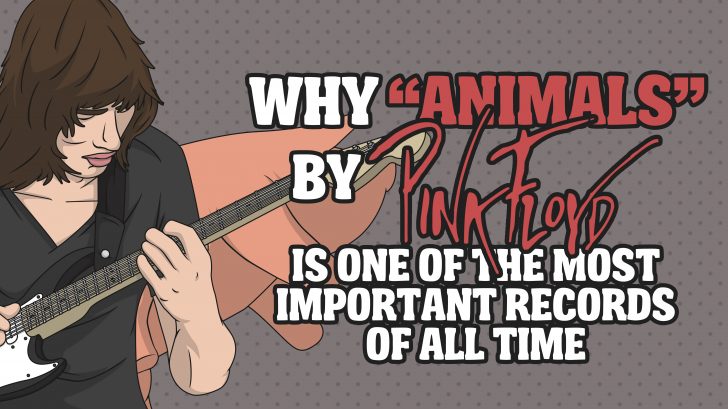Society and Politics haven’t changed much. Animals is as relevant today as it was more than 40 years ago
It’s no secret that the great legendary rock band Pink Floyd weaves political satire into their music. Their hit songs such as “Comfortably Numb” and “Hey You” are not only known for its classic “Floydian” sounds but also for that subtle, and maybe even not-so-subtle, political commentary. Out of all of Pink Floyd’s records, however, nothing is more politically satirical than 1977’s Animals.
Heavily inspired by and derived from George Orwell’s 1945 allegorical novel Animal Farm, Pink Floyd’s Animals provides a socio-political critique on the societal decay of its era (the late ‘70s) despite the record deemed as one of the band’s bleakest.
It’s almost rare to hear songs from Animals on classic rock radio. The spread of the entire record only runs 40 minutes across five tracks, namely “Pigs On The Wing (Part One)”, “Dogs”, “Pigs (Three Different Ones)”, “Sheep”, and “Pigs On The Wing (Part Two)”.The limited number of tracks contain extensive instrumental jams that true die-hard fans of rock music delight in.
Today, over forty years after Animals was first released, the music and lyrics are more relevant than ever — which goes to show how little has changed in the socio-political landscape of the modern society. In fact, it is worthy to note how eerily Pink Floyd ‘predicted’ the piggish-like politics that have been unraveling the past two years. Aside from the album trailblazing in the band’s early prog characteristics, it proves timeless with its distinct relevance to today’s political atmosphere, four decades into the future.
A perfect illustration of Animals’ modern-day relevance was during 2016’s new presidential transition, when a group of architects from Chicago proposed a plan to block the Trump Tower Chicago logo with a strictures of gold balloon pigs, a direct reference to the album cover of Pink Floyd’s Animals featuring a balloon pig floating between two of the chimneys of London’s Battersea Power Station.
Animals was a head-on response to the politics of its time, and maybe in a turn of coincidence, or simply, a cycle of the same political climate through the years, Animals gives a grave prophecy to what has been happening and will happen to the politics of today’s time.
As David Gilmour sings on “Sheep”,
Lo, we shall rise up, and then we’ll make the bugger’s eyes water

